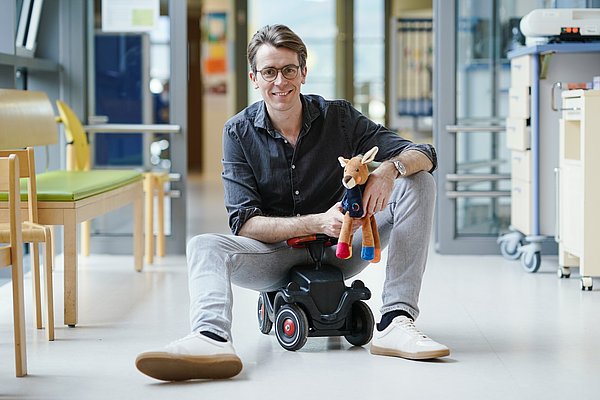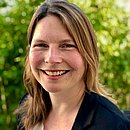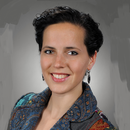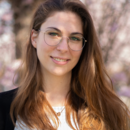The Hopp Children’s Cancer Center Heidelberg (KiTZ) is a joint institution of the German Cancer Research Center (DKFZ), Heidelberg University Hospital (UKHD) and the University of Heidelberg (Uni HD).
Treatments such as chemotherapy, tumor operations and radiotherapy place enormous psychological demands on children and adolescents with cancer and their families. The guidelines of the German Cancer Society therefore stipulate that pediatric oncology facilities must employ at least one full-time psychologist or social worker for every 22 new diagnoses per year.
Peggy Lüttich heads the psychosocial team at the Hopp Children's Cancer Center Heidelberg (KiTZ), which includes the pediatric oncology ward at Heidelberg University Hospital (UKHD). Every day, the psychologist sees the ordeal that affected families face: "A child's cancer is a really deep break for the whole family, changing their entire everyday life and many plans for the future. Not only the affected children and adolescents, but also the other family members are sometimes overwhelmed by anger, fear or even despondency. Families are now faced with the great challenge of not only reconciling everyday family life with cancer therapy, time in hospital, working hours and caring for siblings. They also have to keep an eye on everyone's emotional needs at the same time."
The KiTZ video guide "Cancer in children made clear" with TV presenter Dr. Johannes Wimmer, sponsored by the German Childhood Cancer Foundation, is now being expanded to include a new video series on the most important psychosocial issues facing affected families. In addition to practical questions on social law, school during cancer therapy, rehabilitation and other offers of help, it also deals with the mental health of the whole family. How can parents manage to always be there for their child despite the enormous burden, for example to take away their fear of treatment? How do I talk to my child about the illness? What can help young people get through their treatment well? The videos also address how to deal with guilt and other questions of meaning. And videos especially for children of primary school age or adolescents are also intended to convey to young people affected: "I can do it!"
Peggy Lüttich emphasizes that the videos are of course no substitute for personal conversations with the psychologists, social workers, educators and teachers in a psychosocial team: "There is also no one-size-fits-all recipe for getting through this difficult time well. But we want to use the videos to help families focus on what they can do. And also what services are available to them and how they can accept help. Which family needs what is very different. That's why we always have all family members in mind from the moment of diagnosis."
So far, the video guide "Cancer in children made clear" comprises around 50 videos on the most important childhood cancer treatments, their side effects and care tips. The videos are presented by the physician and TV presenter Dr. Johannes Wimmer, whose daughter died of a brain tumor in 2020. "I know what it feels like to be in this situation. How to get through this difficult time emotionally and where to get help is therefore a very important topic in my opinion. With the video guide, we want to provide affected families with a tried and tested guide that gives them reliable information and orientation in an absolutely exceptional situation."
All videos in the guide are produced in collaboration with the pediatric oncology nursing, medical and psychosocial teams at KiTZ and UKHD, as well as the Cancer Information Service of the German Cancer Research Center (DKFZ). The videos are available on the social media channels and the website of KiTZ and the German Childhood Cancer Foundation and can be requested free of charge from the KiTZ press office by all pediatric oncology institutions.
All videos of the series “Cancer in children made clear” can be found here:




